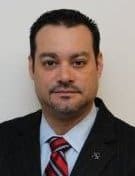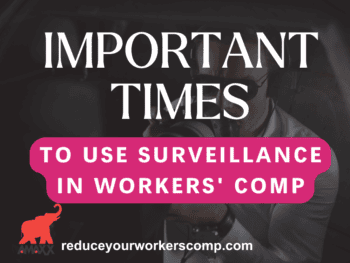
In workers’ compensation programs, fraud, waste and abuse continue to be major drivers in the overall cost of administering a successful plan. In combatting these issues, many techniques are available for claim management teams. A major drawback is the cost-benefit analysis that needs to take place, along with keeping ahead in a fast-paced work environment. One tool teams should consider is the use of medical records investigation, which is an inexpensive and cost-effective alternative to other more formal investigative tools.
Stopping Fraud through Medical Record Searches
There are many aspects to establishing best practices through the review of medical records when combatting fraud, waste and abuse.
- Investigate early. It is essential to use medical record investigation techniques at the onset of a claim. This allows you to better monitor treatment trends and get a better feel for the case. When catching fraud, it is essential to get ahead of the issue as soon as the file lands on a claims handler’s desk. Training on how to identify suspicious claims should be a part of any effective recovery program.
- Primary Care Providers. The review of primary care provider records is the first source of medical records a claim handler should obtain when combatting fraud. These records include yearly physical information and the most complete information about a person’s health condition and other related issues. It is also important to recover records involving DOT physicals, as people are required to report other comorbid conditions that may impact your claim.
- Urgent Care and ER records. The rise of urgent care clinics has provided access to treatment for serious injuries and other care for incidents that happen after hours or during the weekend. These clinics are often a more affordable point of access to the health system for people who do not have medical insurance or are not able to locate a primary care clinic in their area. Searching these types of facilities in the vicinity of where a claimant has lived and/or worked is important.
- Other Facilities. It is also important to search medical facilities where specialists work. Given the nature of health care in the United States, the proper treatment of a condition or injury often includes care at these facilities. They are a great source of information about underlying conditions that are not reported, or may lead to the names of additional facilities to obtain information.
Watch Out for Common Red Flags
It is also important for members of the claim management team to look at, investigate treatment and care that raises a red flag.
- Claimants that receive medical care and treatment at more than one facility in a given day. An example of this is someone who received chiropractic care and then receives physical ;
- Medical treatments that take place on Monday mornings or after holidays can be an indicators as too injuries that took place over a weekend or holiday.
- Treatment and referrals between providers that share common waiting rooms, or are in adjoining buildings;
- Medical appointments that occur while the claimant is out of town or on vacation;
- Evidence of medical care that occurs on weekends, holidays or occurred during inclement weather; or
- Evidence in medical records that have been changed, altered or not consistent with recommendations by the primary doctor.
Conclusions
It is important for claims management teams to be proactive when combatting fraud, waste and abuse within the workers’ compensation. There are many options available in this area. Using medical record investigation as part of a claim management team’s efforts can help reduce the misapplication of medical resources and be effective for today’s claim management professionals.
Author Carlos Ayestas, National Sales Director, GCS Investigations has over seven years of insurance investigations and over 20 years of sales experience. He is an effective leader and communicator, assisting GCS in successfully investigating claims while producing positive outcomes and mitigating fraud. Carlos received his degree in Homeland Security and Small Business Management from Tulane University in New Orleans, Louisiana. Carlos also holds a Certified Medicare Secondary Payer Professional designation and is currently working on his Fraud Claims Law Associate designation. http://www.gcssiu.com/. Contact: 888-365-3940, cayestas@gcssiu.com

























